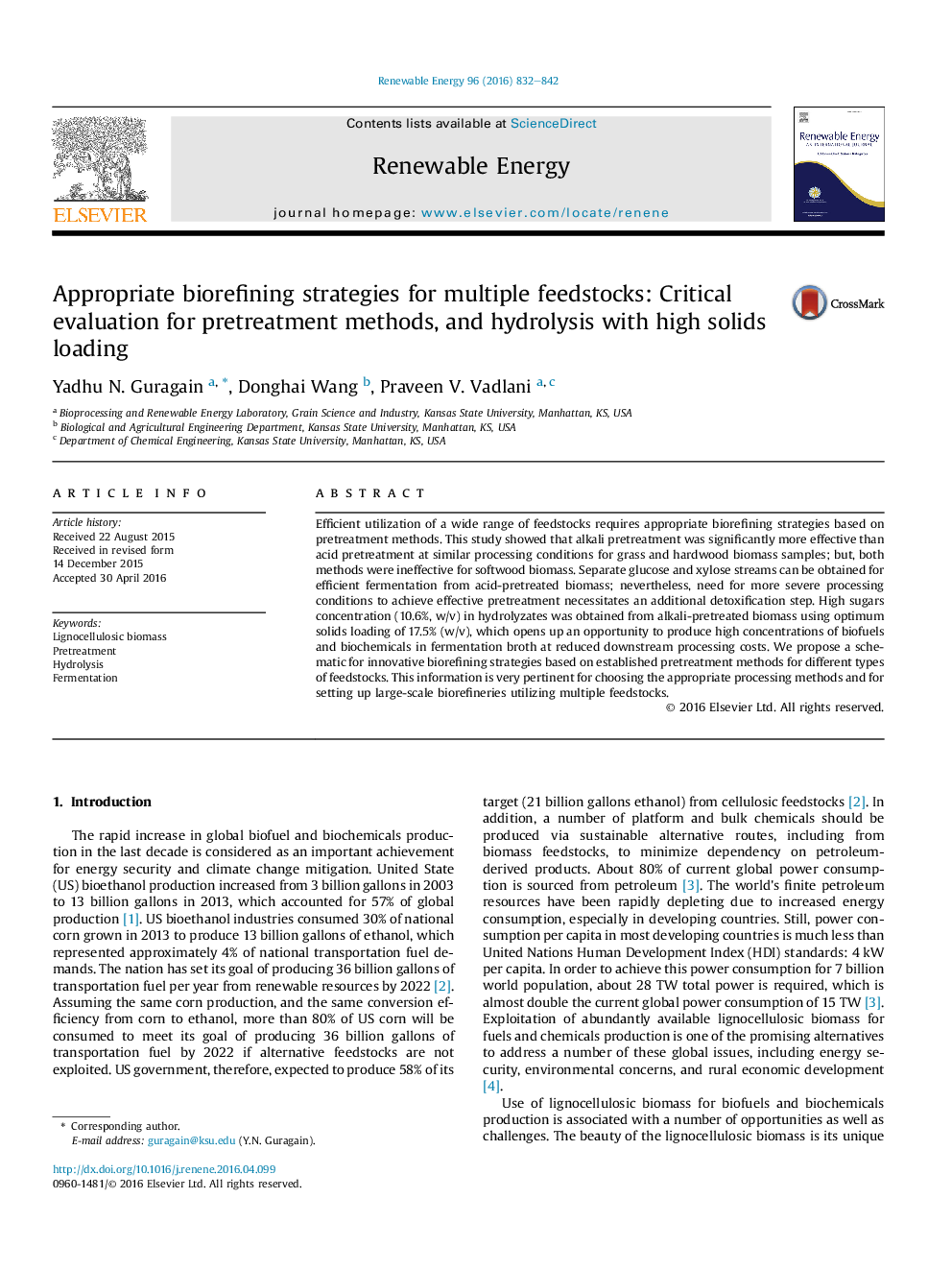| Article ID | Journal | Published Year | Pages | File Type |
|---|---|---|---|---|
| 10293923 | Renewable Energy | 2016 | 11 Pages |
Abstract
Efficient utilization of a wide range of feedstocks requires appropriate biorefining strategies based on pretreatment methods. This study showed that alkali pretreatment was significantly more effective than acid pretreatment at similar processing conditions for grass and hardwood biomass samples; but, both methods were ineffective for softwood biomass. Separate glucose and xylose streams can be obtained for efficient fermentation from acid-pretreated biomass; nevertheless, need for more severe processing conditions to achieve effective pretreatment necessitates an additional detoxification step. High sugars concentration (10.6%, w/v) in hydrolyzates was obtained from alkali-pretreated biomass using optimum solids loading of 17.5% (w/v), which opens up an opportunity to produce high concentrations of biofuels and biochemicals in fermentation broth at reduced downstream processing costs. We propose a schematic for innovative biorefining strategies based on established pretreatment methods for different types of feedstocks. This information is very pertinent for choosing the appropriate processing methods and for setting up large-scale biorefineries utilizing multiple feedstocks.
Related Topics
Physical Sciences and Engineering
Energy
Renewable Energy, Sustainability and the Environment
Authors
Yadhu N. Guragain, Donghai Wang, Praveen V. Vadlani,
